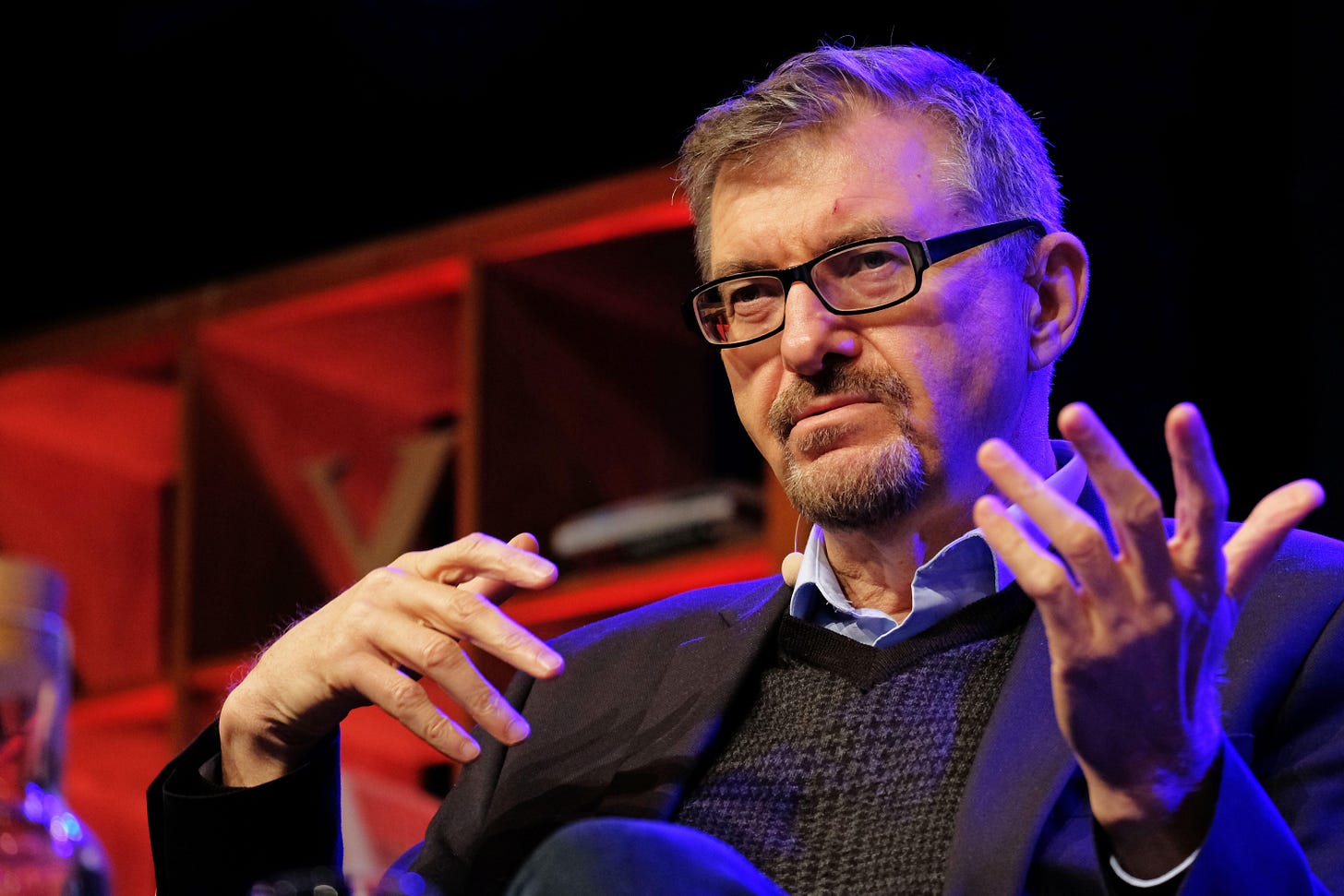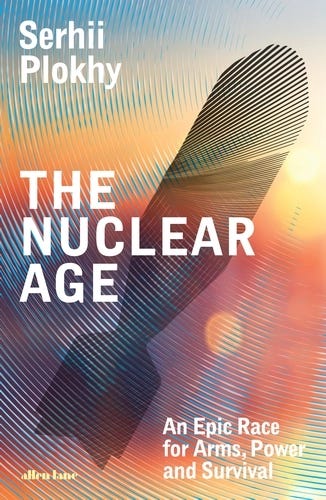Out Of Control On The Nuclear Highway: Putin, Trump and the Risk of Global Annihilation
On the Byline Podcast, Adrian Goldberg interviews Harvard Professor of History Serhii Plokhy about his new book on the risks of a new nuclear arms race and the threat to Ukraine
“Where we where we are today is like a nuclear highway with no lights, a lot of crazy drivers, and no rules, no regulations, no speed limits, where everyone is trying to accelerate as much as they can,” warns Serhii Plokhy, summing up the conclusion of his new book, The Nuclear Age: An Epic Race For Arms, Power and Survival.
In a chilling interview with the Byline Podcast, Harvard history professor Plokhy said, “It reminds me of where the world was before the Cuban missile crisis in the 1950s, where there were really no rules or regulations or agreements on the control or reduction of nuclear weapons.
“Except that today, we are in a more dangerous place, because there are more drivers on that nuclear highway than there were back in 1950s, when there were just two big trucks, one called the Soviet Union, another called the United States of America, and a couple of smaller trucks driven by the UK and then later France.
“Now there are more than 40 countries that could, if they decided, develop nuclear weapons, within a maximum two years. Nuclear is not cutting edge technology as it used to be, and it’s pretty cheap. If countries like North Korea can have their own atomic and hydrogen bomb, so can much more economically affluent countries all over the world.”
Plokhy also fears that nuclear power plants, previously regarded as untouchable during a military conflict, have also become a source of conflict. He grew up in the Ukrainian city of Zaporizhzhia, where reactors were targeted by Vladimir Putin following Russia’s full-scale invasion in February, 2022.
“On the very first day, the Russians took over the Chernobyl nuclear power plant and then within a few days, warfare was waged on the territory of Zaporizhzhia, the largest nuclear power plant in Europe,” he said.
“Suddenly, this division between ‘good atoms’ and ‘bad atoms’ – atoms for peace and atoms for war – ceased to exist. Waging war there meant that the ‘atoms for peace’ were turned into potential ‘dirty bombs.'
“On top of that, Zaporizhzhia is still being used as a military asset to shield Russian armed forces from possible attacks by Ukraine, because Ukrainians would not attack a nuclear power plant. So it’s horrible to say it, but nuclear sites are now ‘fair game’ when it comes to contemporary war, and we have to do something about that.”
According to Plokhy, Putin was even been tempted to use tactical nuclear weapons to force Ukraine to surrender, as evidenced by his use of ballistic missiles such as the Iskander.
He said: “There is no other purpose of using ballistic missiles like these, but to intimidate the Ukrainians [and] to intimidate the coalition that supports Ukraine, because it’s a very expensive weapon and without a nuclear warhead, it really doesn’t produce much damage.”
Plokhy argues that Russia was dissuaded from going nuclear by its allies China and India, as well as the fear of retaliation by the United States – although he believes that now Donald Trump is in the White House, a new arms race is inevitable, because America’s allies can no longer be confident of its protection.
He recalls that when Ukraine gave up its nuclear arsenal under the Budapest Memorandum in 1994, its sovereignty was guaranteed by the US (as well as the UK and others) – a commitment which now looks less than watertight, given Russia’s recent territorial advances. Therein, Plokhy believes, is a lesson for those in the West who advocate unilateral nuclear disarmament.
“My advice to anyone who thinks in those terms is actually look at Ukraine,” he said.
“Read the news coming from there. Read about bombings. Read about people and children dying. And this is the country that disarmed. It’s the country that came into existence in the early 90s, when there was this general belief in the end of history – the history, at least, of violence and the beginning of the history of setting good examples.
“[But] if you really can’t defend yourself in a way that would send a signal to the world that it’s really very costly to mess with you, because you can fight back – unless you do that, you are incapable of defending your own security, safety, your values, your political system, the whole thing which our life is based on in most western countries.
“That’s the big lesson of the war in Ukraine. You can’t rely on guarantees or assurances provided by somebody else. The only guarantee is nuclear weapons.”
Listen to the full interview with Serhii Plokhy here.



